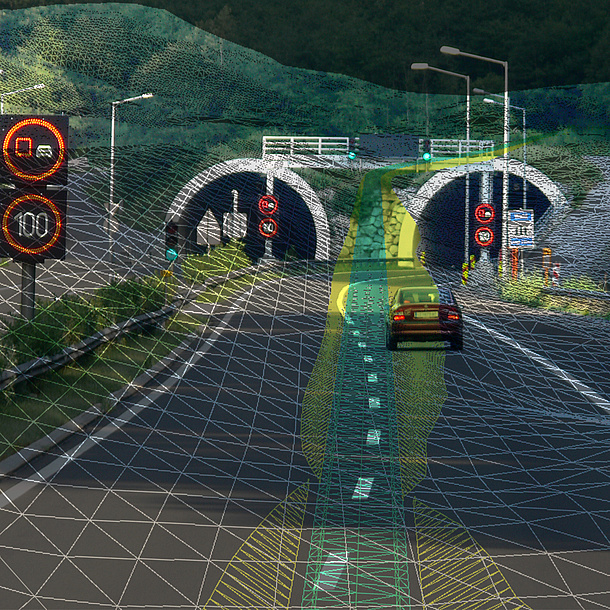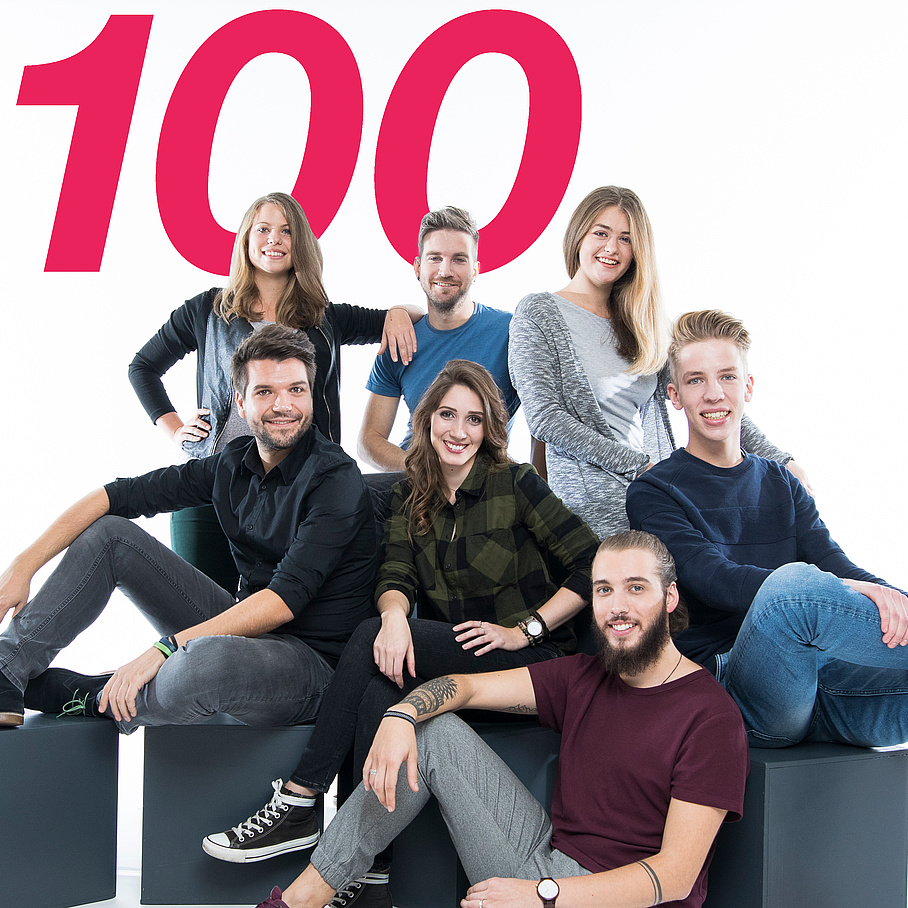Quick Facts
- Duration of study: 4 semesters
- ECTS credit points: 120
- Academic degree: “Diplom-Ingenieurin” or “Diplom-Ingenieur” ("Dipl.Ing." or "DI"), equivalent to the Master of Science (MSc)
- Language of instruction: German
The Master's Programme
This engineering sciences education programme consists of a compulsory subject, “Planning and Construction Methods Infrastructure”, and two groups of electives, enabling you to specialize in the subject. In the 3rd semester, you will complete a master's project. In the 4th semester, you will write your master's thesis, the content of which is assigned to one of the courses.
The course content is closely connected to relevant research topics, including transportation and mobility as well as the environment and sustainability. You will learn about current developments in transport planning and road traffic engineering, railway infrastructure, track construction and maintenance, and hydrology and groundwater modelling.
During your studies, you will acquire in-depth technical knowledge, but you will also acquire practical, social and media skills that will prepare you to enter exciting professional fields. You will ...
- acquire solid knowledge about complex road, railway and urban water management infrastructures.
- practice how to work professionally and use state-of-the-art analysis techniques.
- learn how to independently plan and conduct scientific and applied projects using cutting edge technology and research methods.
- develop an awareness for the potential ethical, environmental, social and economic implications of the subject area.
- learn how to critically examine technical problems, to compare possible solutions and to identify appropriate alternatives on your own.
Students have access to modern, well-equipped laboratories. These include:
- a laboratory for railway superstructure at the Railway Design Institute
- a waste water laboratory for the determination of chemical and physical parameters
- a psychoacoustic laboratory for the analysis of traffic noise
Play video
Students talk about the Master's programmes in Civil Engineering
Focus Areas
The compulsory subject “Planning and Construction Methods Infrastructure” offered in the 1st semester comprises the following courses: Sustainable Infrastructure, Networks and Network Modelling, Transport Planning, Track Construction and Maintenance and Urban Water Infrastructure.
The courses in the elective subject “Applications in Infrastructure” are offered from the 2nd semester and onwards. From this point and on, you will delve deeper into the subject areas of transport infrastructures and water and wastewater infrastructures. In both subject areas, you will learn to examine the entire infrastructure life cycle and to determine the economically useful lifetime, considering the technical and operational constraints. In the area of transport infrastructure, the course illustrates the interrelationships between the long-distance transport and inner-city transport systems, including the areas where road and rail systems intersect.
From the 3rd semester onwards, the courses in the elective subject “Supplementary Subject Civil Engineering” will direct your focus toward social, ecological and economic contexts. In addition, special topics are offered, such as airport operations, cable car construction, local public transport, intelligent drinking water networks and traffic concepts. In addition, more specific applications of modelling tools are presented, e.g. for water and sewage treatment plant modelling, but also environmentally relevant special topics, such as water quality assessment, aquatic ecology and traffic safety.
Key Subjects Related to Climate and Sustainability
The transportation and water infrastructure sectors are closely related to issues of climate and sustainability, which will be of great significance in the future. In the transportation sector, decarbonization efforts need to be driven forward by applying multimodal solutions in which road and rail transportation are intelligently interconnected. Central European railways occupy a leading position worldwide in this sector.
The increase in rail transport services offered is resulting in a great demand for junior staff in the field of railway infrastructure all throughout Europe, but especially in the German-speaking countries. These staff will perform tasks in the areas of technology, rail operation and life cycle management. In addition, Austria has the largest share of the railway industry in terms of the worldwide gross domestic product.
In the field of urban water management, which represents the second focus of the course, pollution and increasing extreme weather events are posting problems that will require well-trained engineers to provide solutions.
Admission
1. Admission Procedure
Graduates of the Bachelor's Degree Programme in Civil Engineering Sciences and Construction Management at TU Graz are admitted without needing to fulfil further requirements.
Graduates of other bachelor's degree programmes can obtain information and apply for admission by contacting study@tugraz.at.
2. Admission
- Admission and deadlines for Austrian students who are beginning their studies at TU Graz for the first time
- Admission and deadlines for international students
- If you are or were already admitted to a degree programme at TU Graz, please come to the TU Graz Registrar’s Office in person during the admission period or contact study@tugraz.at.
Fragen zur Zulassung?
Contact study@tugraz.at
Career Prospects
Professional Fields
The state-of-the-art specialized knowledge and practical application skills you acquire in this programme open the door to an independent career – both nationally and internationally. Graduates of the master's degree programme apply their knowledge and skills while working for the following employers:
- in planning offices,
- in administration,
- in industries,
- for public authorities,
- for operators of (transport) facilities, and
- in the field of research and teaching at universities and other research institutions.



